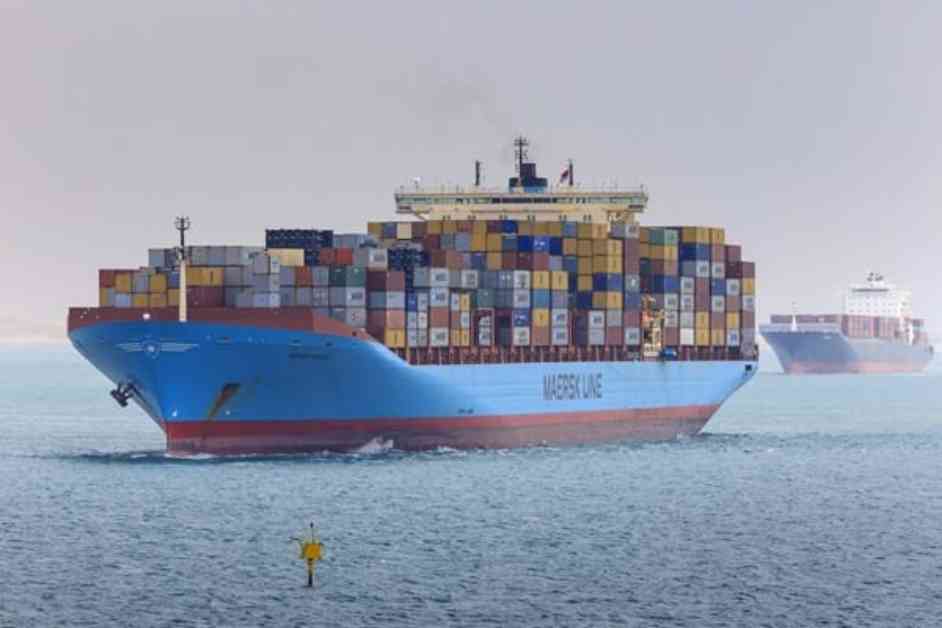The Impact of Eliminating America’s $800 ‘de minimis’ Limit on UK Exporters
Commercial shipments entering the United States valued at under $800 are currently not subject to duties and face minimal scrutiny. The ‘de minimis’ rules in America allow for the easy entry of low-cost products into the country, especially from international e-commerce platforms. This $800 threshold has played a significant role in the growth of online platforms like Temu and Shein, which offer products primarily sourced from China. However, this provision is also highly beneficial for UK exporters to the US, according to Parcelhero, an international delivery expert.
UK exporters, particularly those of clothing, textiles, and leather goods valued under $800, may now find themselves impacted by America’s efforts to crack down on Chinese competition and the smuggling of illegal goods and drugs like fentanyl. David Jinks M.I.L.T., Head of Consumer Research at Parcelhero, points out that US lawmakers are considering either eliminating or making significant changes to the $800 de minimis provision. Former US President Barack Obama raised the threshold from $200 to $800 in 2016 in an effort to reduce import costs for US consumers and cut red tape.
The increase in the de minimis threshold had an immediate effect, with U.S. Customs and Border Protection processing 1 billion de minimis shipments in 2023, a six-fold increase from 2015. While companies like Shein and Temu are major beneficiaries of this provision, businesses from various countries, including UK exporters, have also reaped the benefits. However, bipartisan legislation is now being proposed to either abolish or alter the $800 de minimis exemption due to concerns about unfair competition and smuggling activities facilitated by the provision.
Several bills and government initiatives are under consideration, with potential changes ranging from abolishing the scheme entirely to lowering the threshold significantly. If the US were to adopt a de minimis threshold similar to that of the European Union or Canada, UK-US exports of goods like clothing, leather products, and bicycles could be significantly impacted. Smaller items sold through international e-commerce platforms and shipped via airfreight would face lower exemption thresholds, increased paperwork, and Customs checks.
Despite the potential consequences of eliminating the de minimis provision, a recent study by economists from Yale and UCLA suggests that doing so could result in a $14 billion loss for American consumers and importers. Low-income and minority consumers would be disproportionately affected by the change, weakening their purchasing power. Alternative schemes, such as the “De Minimis Reciprocity Act” and the “Import Security and Fairness Act,” are being considered to address concerns about counterfeit goods, forced labor, and illicit imports.
The “FIGHTING for America Act” proposes to reduce the volume of low-value packages entering the US under de minimis rules, with a focus on combating the influx of fentanyl and leveling the playing field for American manufacturers and workers. This legislation would also require US Customs to collect more information about commercial packages and establish a Customs user fee of $2 per shipment for de minimis entry procedures. Such a fee would increase the cost for UK SMEs exporting low-value items to the US in large volumes.
UK exports to the USA totaled £192 billion in the four quarters leading up to the end of Q1 2024, marking a 3.2% increase compared to the previous year. Given the significant trade volume between the UK and the US, it is evident that any changes to the de minimis provision could have far-reaching implications for UK exporters. Parcelhero, which considers the US its largest individual overseas market, plays a crucial role in facilitating shipping to the US, making it as seamless as shipping to the EU.
In conclusion, the potential impact of axing America’s $800 ‘de minimis’ limit on UK exporters cannot be underestimated. The changes being considered by US lawmakers could have wide-ranging effects on international trade, particularly for countries like the UK that rely on the de minimis provision for their exports to the US. As discussions continue regarding the future of the de minimis rules, it is essential for exporters to stay informed and adapt to any regulatory changes that may arise in the coming months.

